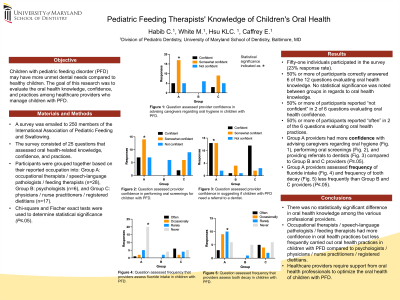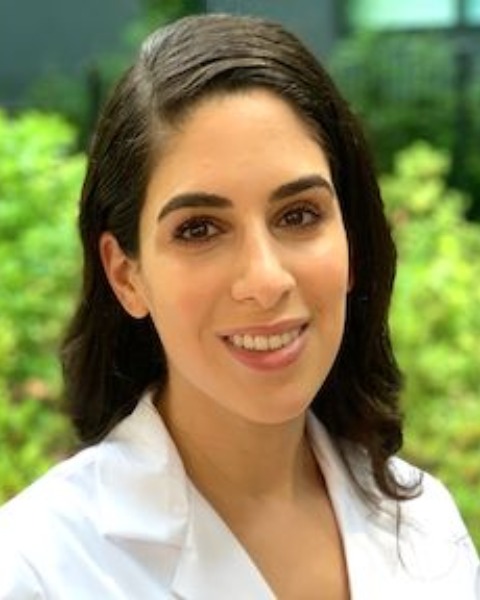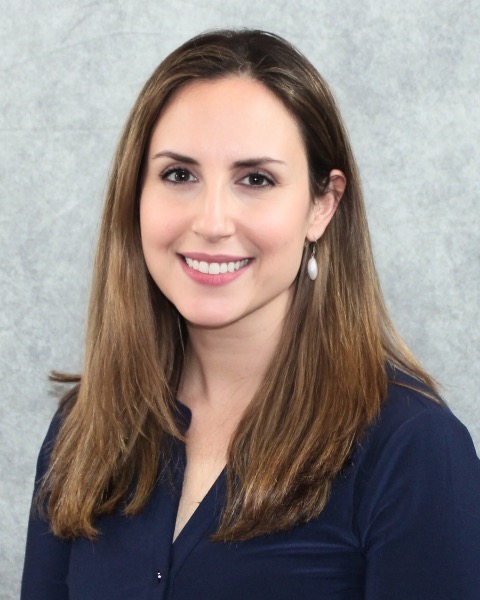Special Health Care Needs
327 - Pediatric Feeding Therapists' Knowledge of Children's Oral Health


Chloe Habib, DMD (she/her/hers)
PGY2
University of Maryland, College Park, MD
University of Maryland School of Dentistry
Baltimore, Maryland, United States- EC
Erica Caffrey, DDS
University of Maryland School of Dentistry
- KH
Kuei-Ling Hsu, DDS
University of Maryland School of Dentistry
- MW
Melissa White, none
University of Maryland School of Dentistry

Erica Caffrey, DDS (she/her/hers)
Clinical Assistant Professor
University of Maryland School of Dentistry
University of Maryland School of Dentistry
Baltimore, Maryland, United States
Glenn Canares, DDS, MSD
Program Director, Pediatric Dentistry
University of Maryland School of Dentistry
Baltimore, Maryland, United States
Presenting Author(s)
Co-Author(s)
Research Mentor(s)
Program Director(s)
Objective: Evaluate the oral health knowledge, confidence, and practices among healthcare providers who manage children with PFD.
Introduction: Children with pediatric feeding disorders (PFD) have increased barriers to dental care compared to healthy children.
Methods: Two hundred and twenty-five surveys were emailed to members of the International Association of Pediatric Feeding and Swallowing organization. The survey consisted of 25 questions to assess oral health-related knowledge, confidence, and practices. Participants were grouped together based on their reported occupation into 1 of 3 groups: group 1: occupational therapists, speech-language pathologists, and feeding therapists (n=28), group 2: psychologists (n=6), and group 3: physicians, nurse practitioners, and registered dietitians (n=17). Chi-square and Fischer exact tests were used to determine statistical significance (P<.05).
Results: Fifty-one individuals (23% response rate) participated. 50% or more of participants correctly answered 6 of the 12 questions evaluating oral health knowledge. Oral health knowledge only differed between groups with respect to knowledge of age of first dental visit (P<.001). 50% or more of participants reported “not confident” in 2 of 6 questions evaluating oral health confidence and reported “often” in 2 of 6 questions evaluating oral health practices. Statistical significance (P<.05) was noted between groups in both oral health confidence and practice questions.
Conclusion: Healthcare providers require support from oral health professionals to optimize the oral health of children with PFD. Support may include increased targeted educational programming and development of enhanced referral pathways for dental providers.
Identify Supporting Agency and Grant Number: Research supported by University of Maryland School of Dentistry.

.jpg)